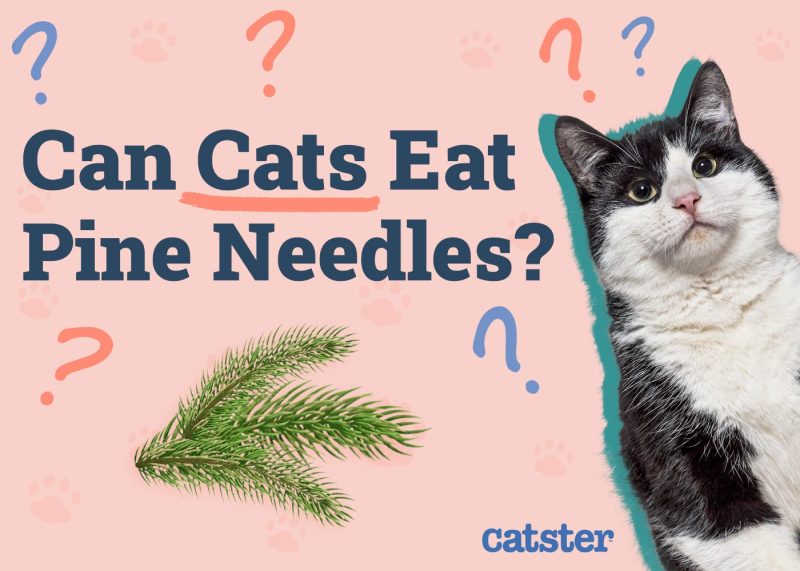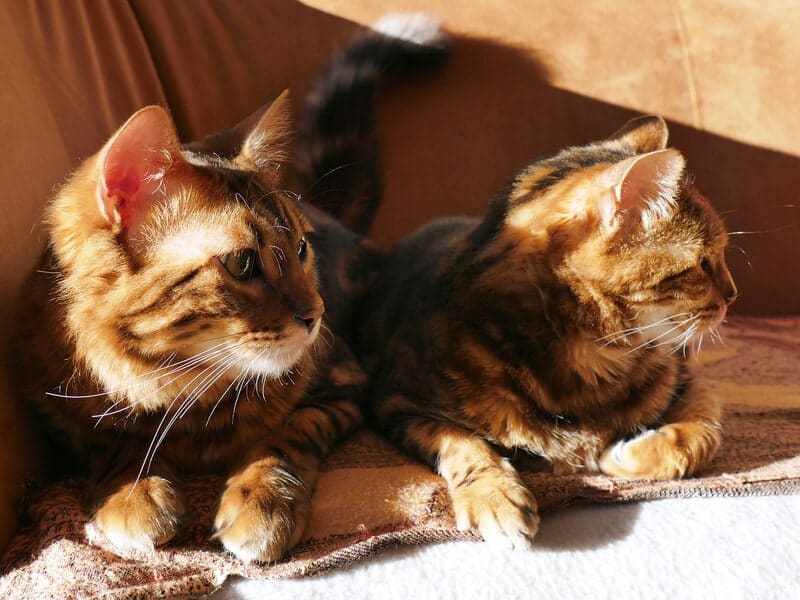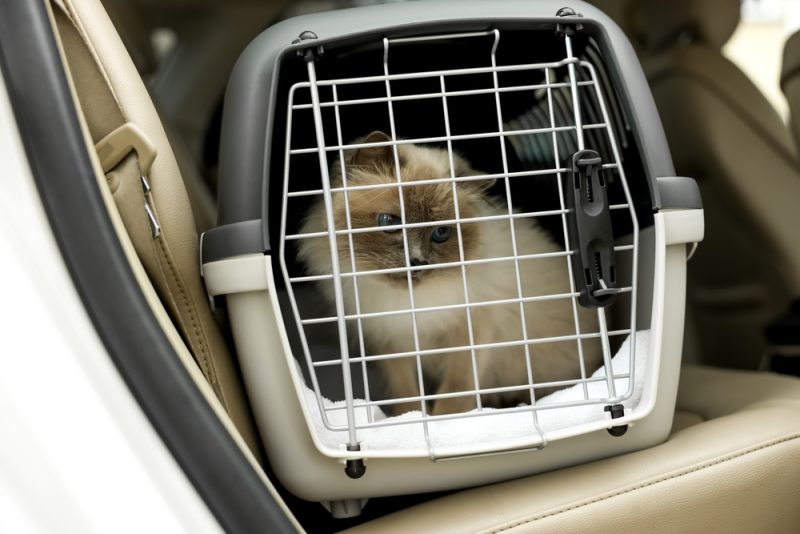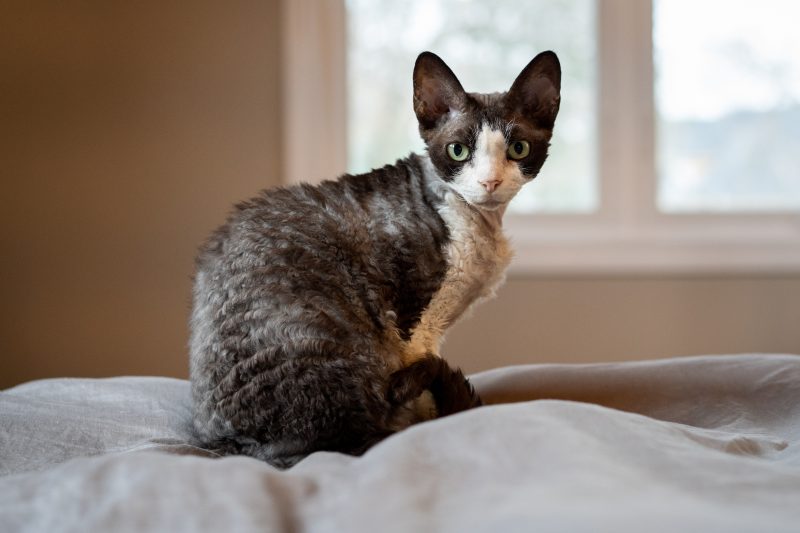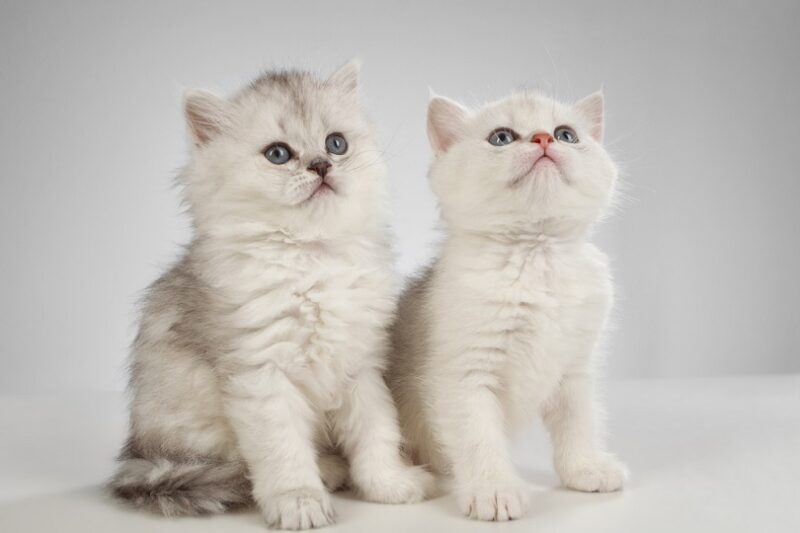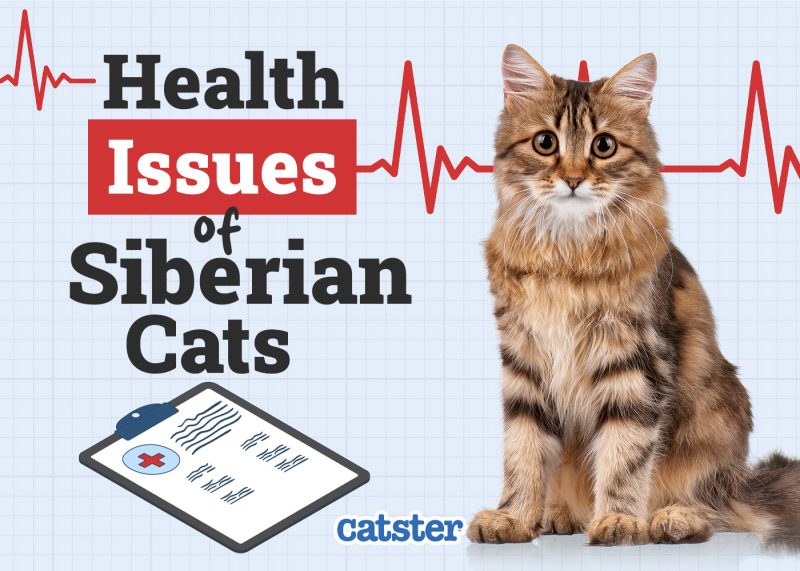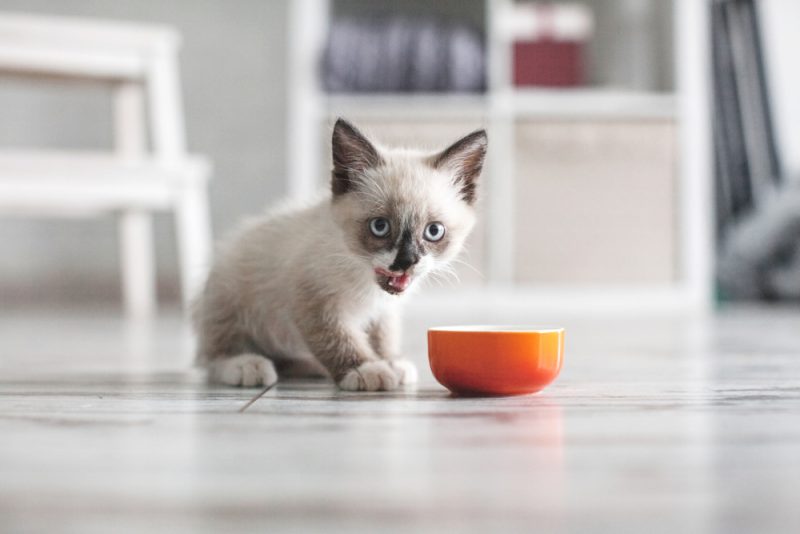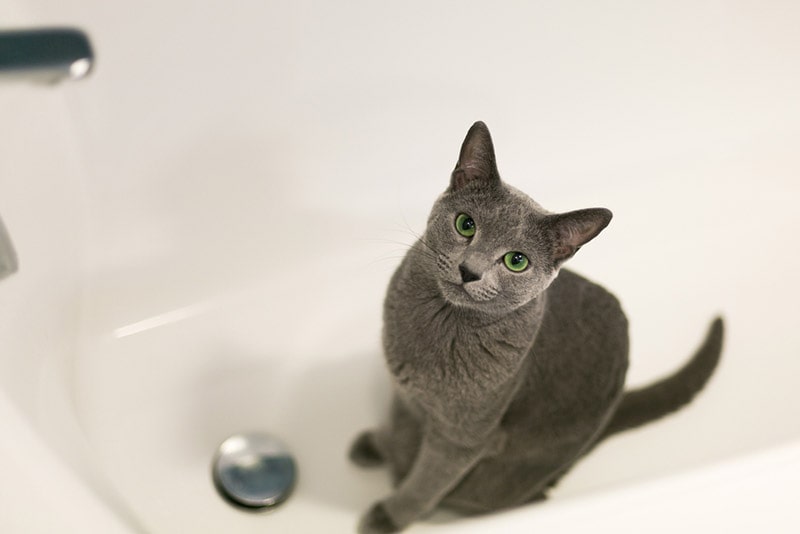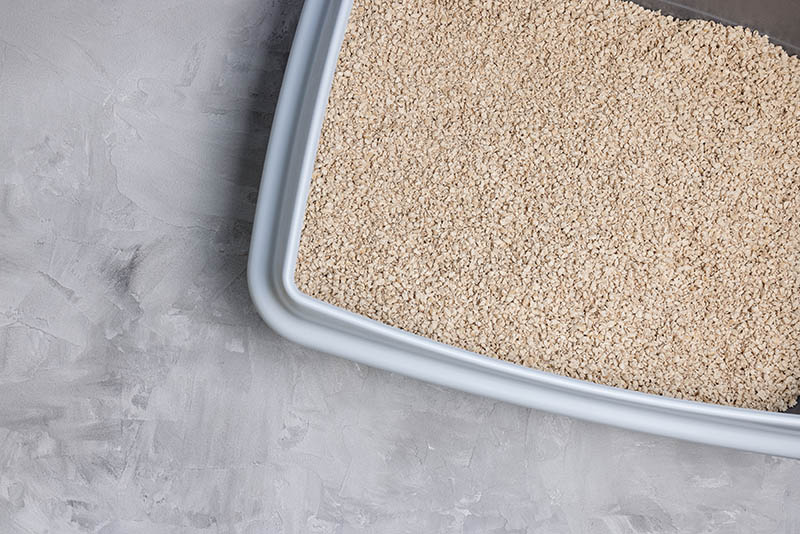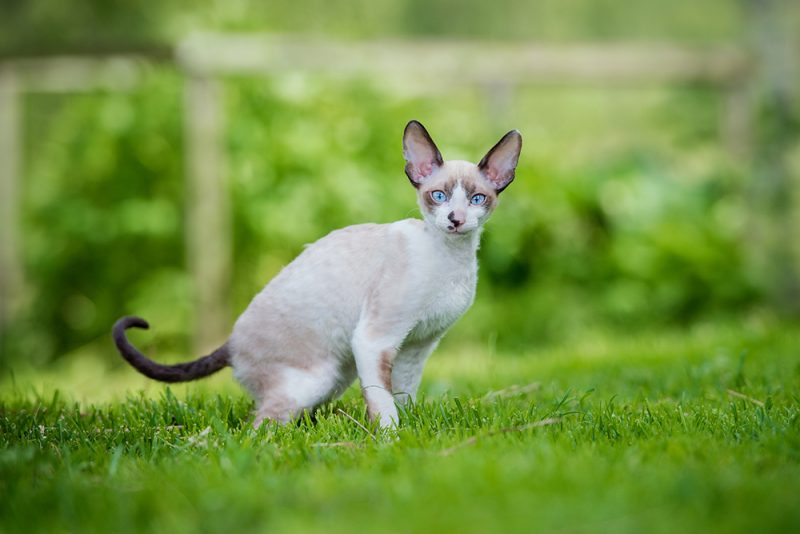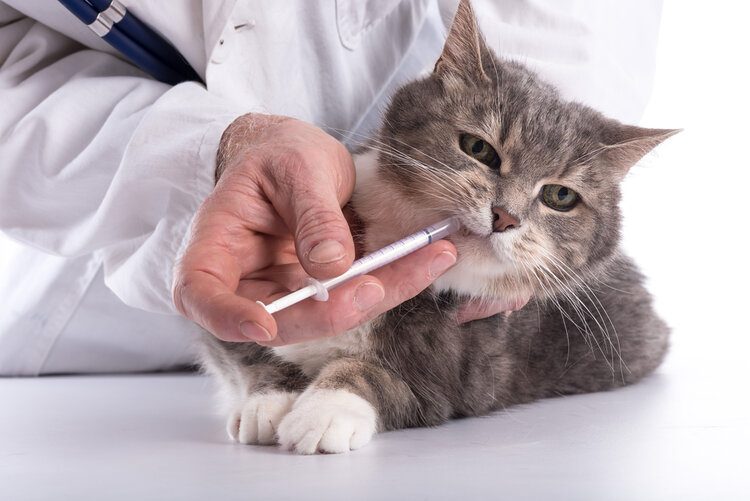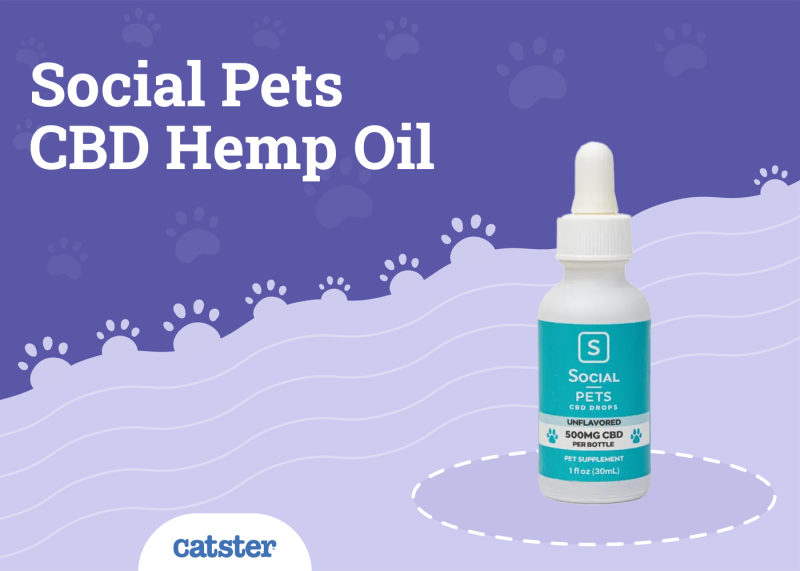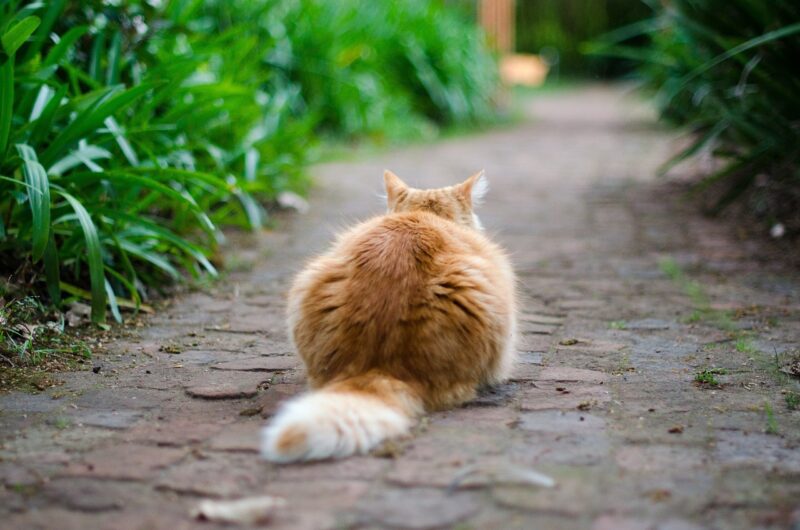If you want to celebrate Christmas with a beautiful pine tree in your house, but you also own a cat or two, you know how tricky this can be. Beyond the usual hazards of your cat vs. the Christmas tree, is it safe for your cat to snack on pine needles?
Are pine needles safe for cats? No, they are not! There are two concerns regarding pine needles and cats: pine needles have toxic elements, and there’s a puncture risk.
We know that you want to enjoy your Christmas tree, but not if it’s a risk for your cat. Here, we go over why pine needles are a risk for cats and what you can do to lessen the danger.

A Little About Pine Trees
Pine trees are conifers (which means they are a plant that bears cones — pinecones) that belong to the genus Pinus. There are at least 100 species of pine trees that range in size from about 3 feet to 100 feet tall!
- White pine — The white pine is a light bluish-green color. It doesn’t do well with heavy ornaments because the branches aren’t as strong as some other trees. It also isn’t as strongly fragrant.
- Scotch pine —This tree makes an excellent Christmas tree because of its dark-green color, medium fragrance, and strong branches.
- Virginia pine — The Virginia pine has a medium fragrance and is a dense green tree with twisted needles.
Despite the beauty of all these different pine trees, there’s a good reason that cats and pine trees should be kept away from each other.
Cats and Pine Needles
There are numerous hazards for cats when it comes to Christmas trees, but those hazards are more extreme with pine trees in particular.
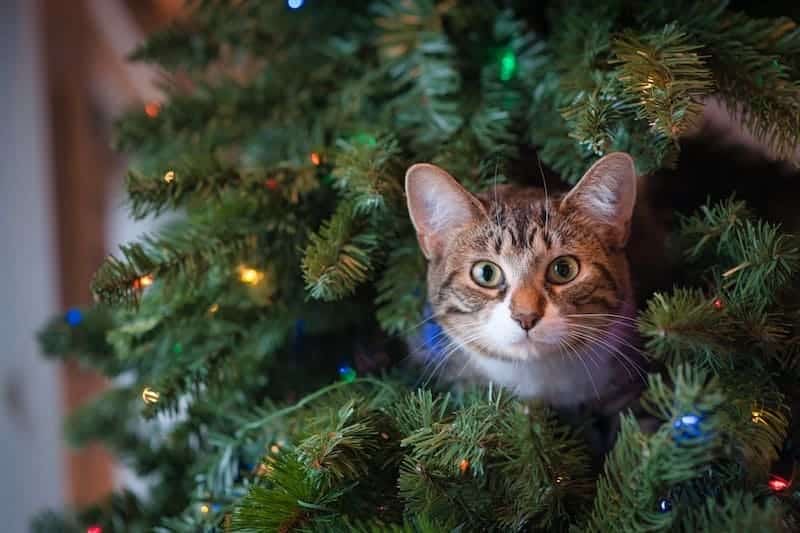
Pine Sap and Oil
Cats and essential oils do not get along. Cats are highly susceptible to essential oil poisoning, either by ingesting it or it getting on their skin, where it can be absorbed. Cats are missing a specific enzyme in their livers called glucuronyl transferase that is needed to metabolize essential oils. Some essential oils are worse than others, but pine oil is included on the “toxic for cats” list.
If left untreated, any essential oil, like pine oil, that your cat ingested can eventually lead to death. Pine oil is also found in the sap of a pine tree. So, if your cat chews on pine needles or gets sap on their fur and licks it off, you need to contact your vet right away!
If you need to speak with a vet but can't get to one, head over to PangoVet. It's an online service where you can talk to a vet online and get the advice you need for your pet — all at an affordable price!

Pine Needles Act as Needles
As anyone who has handled a pine tree can attest, those needles can be sharp! Swallowing a bunch of those little pine needles could cause internal damage.
The sharp points could potentially puncture the mouth, esophagus, stomach, and intestines, which can be painful and cause serious injury.
Additionally, any pine needles on your floors could puncture their paws. If you believe that your cat has swallowed any pine needles, speak to your vet about the next steps.

Tree Water
In some ways, the tree water can be the worst culprit for cats. There are many bad things in the water, including pine sap, bacteria, and mold.
Also, some trees are treated with chemicals to help preserve them and enhance their appearance. There could also be fertilizer, pesticide, and/or fire-retardant residue present on the tree, which can leach into the tree water.
You should prevent your cat from drinking any tree water, regardless of if it’s from a pine.

What Are the Options?
If you have your heart set on a real tree, you could investigate spruce or fir trees as alternatives to pine. You’ll need to stay on top of any dropped needles because you still don’t want your cat to be eating them, but these aren’t quite as bad for cats. You can also consider cat-proofing your tree:
- Place your tree in a location that isn’t close to anything that your cat can use to jump onto it.
- Secure the tree so it doesn’t easily topple over. Give it a sturdy base and attach it to the wall.
- Consider laying down a tree skirt, which you can use to cover the dangerous tree water.
- Use aluminum foil at the base of the tree. Many cats will avoid walking on it.
- Adorn your tree with cat-safe decorations, and avoid decorating the tree around the bottom, which can entice most cats. Any ornaments should be shatterproof.
- Be careful with the lights, as some cats enjoy chewing on wires. Wind the lights around the trunk and keep them away from the bottom. Try covering the wires with some kind of tubing.
- Only decorate the tree when your cat is not in the room, as it will just increase their curiosity factor. Also, your cat will think that you’re encouraging playtime.
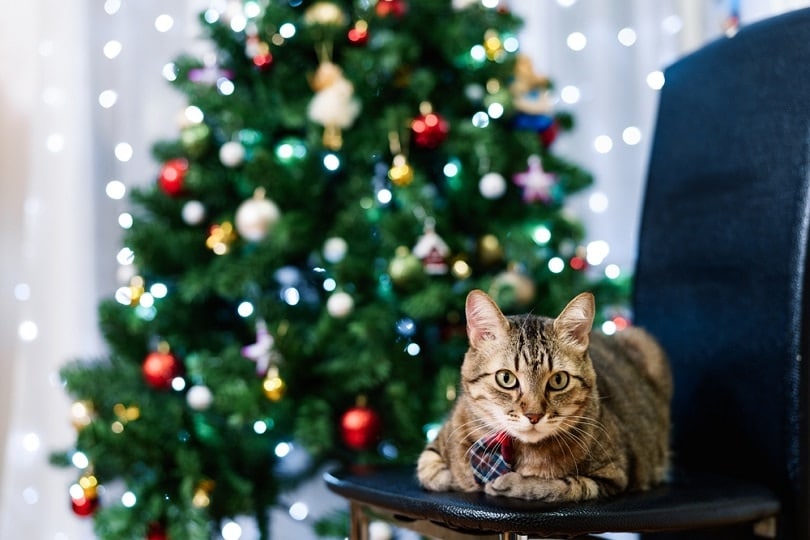
The other option is to go with an artificial tree. These can be quite realistic and won’t have the same toxic risk. But be aware that you’ll still want to prevent your cat from eating any of the plastic needles, as they can potentially cause an intestinal obstruction.

Conclusion
It’s best to be safe and avoid having pine trees around your cat. The potential physical injury and the chance of poisoning just don’t make it worth the risk. Your best bet is an artificial tree, which can be used for years. Check online for other Christmas tree alternatives.
If you believe that your cat did eat pine needles, whether from your Christmas tree or from trees outside, you should speak to your vet as soon as possible. It’s best to err on the side of caution when it comes to your cat’s health and safety.
